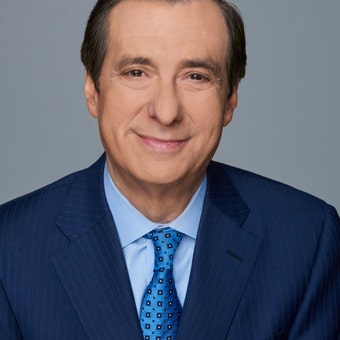Back in 1949, Washington was consumed by a great geopolitical debate: Who lost China?
The Communist takeover of the mainland was blamed on Harry Truman, and scaremonger Joe McCarthy fingered Secretary of State Dean Acheson, "this pompous diplomat in striped pants," for the "loss of China." But a Washington Post editorial said the U.S. "has never at any time been in a position to exercise more than a minor influence on China's destiny. China was lost by the Chinese"—a verdict now embraced by many historians.
Judging by the headlines, the consensus of many of those in politics today is that Joe Biden lost Afghanistan. And yet he took office at the tail end of a 20-year war in which his two predecessors, of different parties, also wanted out of that quagmire.
There is little question that Biden botched both the planning and execution of the American withdrawal, leading to chaos, carnage and, with the suicide bombing, the deaths of 13 service members. For all his insistence that any exit would have been "messy," he and his national security team made spectacular miscalculations about the strength of the Afghan government and military, which folded like a paper tiger. As our military withdrawal officially ends today, history will record this as been a global humiliation for the United States.
And yet the swiftness of the Taliban takeover must be separated from the political decision to end a two-decade war that was never going to succeed. Biden wanted American forces out for the same reason that Donald Trump did—we were still spending billions and risking lives on a country that was always going to be torn by tribal warfare.
KABUL AFTER THE BOMBINGS: BLAMING THE MEDIA ISN’T WORKING
And that, it turns out, was a popular stance. Except for a minority contingent of political and media hawks, the public had long since tired of Afghanistan—in fact, had increasingly tuned it out. More than two-thirds of those responding to polls favored pulling out. A war, as we learned so painfully in Vietnam, and in Iraq, cannot be sustained indefinitely without greater public support.
After two decades of lies and misleading reassurances—all too reminiscent of Vietnam’s "light at the end of the tunnel"—we were simply propping up a corrupt and incompetent regime in Kabul.
Was Jerry Ford responsible for the fall of Saigon because he was in office in 1975? Richard Nixon had cut a peace deal with Hanoi and withdrawn the last of a massive invasion force two years earlier. And Nixon had inherited the war from LBJ, who had vowed in 1964 not to send American boys to fight an Asian war, and then did just that—to stop a Cold War "domino" from falling. Vietnam tore our country apart, and no president could have sustained it forever.
The public, of course, sometimes wants contradictory things. Let’s get out of Afghanistan, but all of our people, and all the locals who helped our people, should get out safely, and the country shouldn’t again become a terrorist haven. War doesn’t work that way.
The United States went into Afghanistan after 9/11 for the right reasons—to get Osama bin Laden and strike back at al-Qaeda. The first part of the mission took a decade, but then we slid into nation-building, the persistent fantasy that we could plant the seeds of democracy in that turbulent region. No wonder the public eventually lost patience, especially after Bush invaded Iraq over nonexistent WMD.
Washington Post columnist Max Boot says this: "If you ask me who is to blame, I would point not only to Biden but to former President Donald Trump — and to all of us, the people of America. By carrying out this pell-mell withdrawal from Afghanistan, our leaders, after all, were only giving us what we wanted."
Critics say Boot is letting the foreign-policy establishment off the hook. But he says Trump "lit the fuse" by releasing 5,000 Taliban prisoners, and that Biden "should have done better, but he didn’t."
National Review’s Michael Brendan Dougherty says he’s "glad the forever war is ending. As embarrassing, disgraceful, and ugly as Joe Biden has made our exit — and be assured, he does deserve the blame for his own plan going awry — it is not nearly as ugly as the last decade of corruption, death, and mayhem, things that never seemed to bother advocates of the Forever War, until we ceased participating in it."
SUBSCRIBE TO HOWIE'S MEDIA BUZZMETER PODCAST, A RIFF OF THE DAY'S HOTTEST STORIES
He concludes: "The American people finally getting what they voted for is the worst thing that ever happened to advocates of global democratic revolution."
It’s true that if everyone is to blame, then no one is to blame. It’s equally true that there are important lessons here for American foreign policy and the limits of even the greatest military the world has ever known. Warlords and guerrillas can simply outlast us.
The failure to learn those lessons is what ultimately lost Afghanistan—and the conceit that it was ever ours to lose.










































